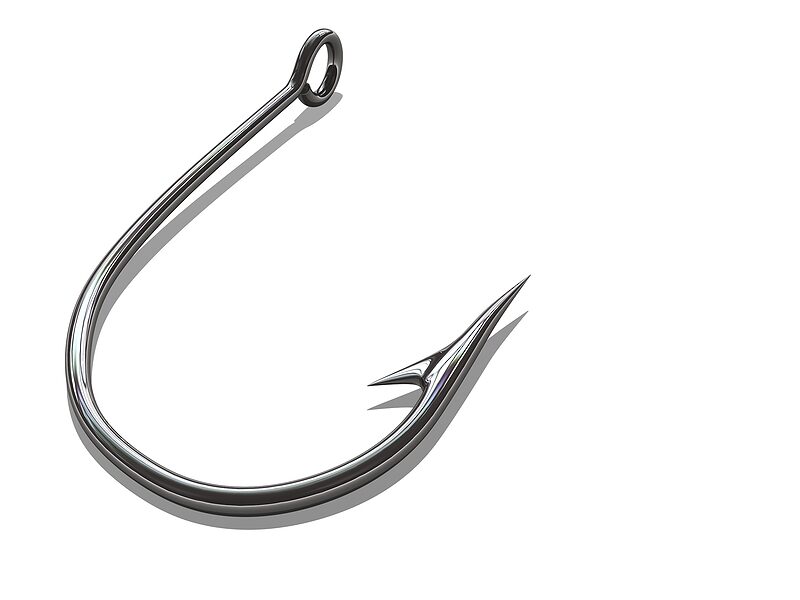Someone recently asked me (as if I know stuff), “What’s the difference between a hook and a gimmick?” I had to think about it, an action to which I’m unaccustomed. But I’m pretty sure I gave a good answer. Sure, why not?
But as I often do, I decided to ask my Steve Laube Agency colleagues for their perspective, and as always was delighted by their answers:
Tamela Hancock Murray said, “A hook is a line that makes the reader say, ‘I’ve GOT to read this NOW!’ A gimmick is when the reader says, ‘Not ANOTHER one of these! I’m soooo tired of this same old same old.’
Lynette Eason answered, “A hook is a promise designed to reel in the reader. Good hooks are integral to the plot or theme of the story, and it’s the author’s job to deliver on that promise. A gimmick may initially attract a reader’s attention, but it eventually fails to deliver on the promise it offered. There’s no depth or authenticity to a gimmick.”
Dan Balow added, “Social media has made hyperbole the norm for communication. We’ve grown used to saying whatever it takes to get attention. That’s a gimmick, and it’s risky because it will leave a reader disappointed. A hook is real. It makes someone want to read a book and ends with a satisfied reader because it delivers on the promise.”
And Steve Laube, He Who Must Be Obeyed, said, “For hook, think of the fishing metaphor. What attracts the buyer’s desire (or the agent’s). A gimmick = corny manipulation. An attempt to gain attention that suggests the author is covering a weak idea or a poorly written manuscript.”
Steve also said (and this will give an indication of the kind of respect I’ve earned within the agency), “The hook is from a real author. The other is from Bob.”
A few days after we’d all shared our thoughts with one another, Tamela shared yet another insight, responding to Dan’s comment about the effects of social media. “Last night,” she wrote, “someone shared a link to an article saying we are only 43% human. The article simply said ‘bugs’ live in our guts to help us digest food. So, this means we’re not human? This was nothing more than a clickbait title to get readers to see ads (probably selling gut health products), offering no new information.” A gimmick, not a hook.
What do you think? How do you distinguish between a hook and a gimmick? Do tell, please.



 Know Your Genre When Making a Pitch
Know Your Genre When Making a Pitch

A turn of phrase that draws me in
to go ahead and buy the book
is the author’s biggest win,
and that is what describes a hook,
while lesser writers try to hide
in tired clickbait mimicry;
a sale to me will not betide,
and that, my friend, is gimmickry.
But a gimmick, like a plowshare,
can be fashioned (with some work,
and attention and much care)
into a fearsome barb to jerk
the potential buyer off his feet
to plant him in his reading-seat.
Love it, Andrew! Have a great day!
Thanks, Linda! A blessed day to you as well!
Examples would help.
A hook “catches” my attention, but a gimmick oftentimes proves a bit “fishy.”
(Sorry – had to go there.)
I really didnt deserve my Nobel Prize…….
67% of all Nobel Prize winners cheated…….
Hook and sinker (Gimmick)
I would love to sit in on one of your meetings! 😊
And this was great information. Thank you.
A gimmick is a flashy lure that fish (readers) sense there’s something fake about. A hook is the real deal, the actual worm that entices the fish to bite.
I agree with what Tamela and Lynette said. Delivering on the promise/hint/suggestion is a must for the story to work.
You’ve shared good examples of the differences between hooks and gimmicks. I used Merriam-Webster Dictionary online to see how they define a gimmick. In part, they state a gimmick is “A device employed to cheat, deceive, or trick…”. And their definition of hook, as a literary tool, is “a device especially in music or writing that catches the attention.”
A gimmick is involved in deception. A hook is a genuine part of the story, and is used to maintain a reader’s interest.
Hooks: On the first page of chapter one, the line will reel me in wanting more of the story, then the chapter should end with the same premise, making me no choice but to read on to satisfy my curiosity and before I know it, I turn the last page.
Gimmick: A book with a promising title, for example (not real) “Reach Your Weight Loss Goal in 30 Days” A gimmick offers empty hope as the further you read, the more you realize they are not going to give you the answer any tine soon, even if you manage to reach the end (I really hope you only get these type of books at a thrift store and only out of curiosity) They only wanted your money and you have wasted your time.
I use common sense to distinguish hooks and gimmicks.
Too good to be true? Probably a gimmick.
Promises to revolutionize your life? Probably a gimmick.
Doesn’t reveal a hint of how it works unless you buy something? Definitely a gimmick.
Some purveyors of gimmicks know they are selling gimmicks. They often show as many red flags as the PRC’s 70th anniversary parade.
In contrast, most true believers–in the generic fanatic sense–don’t realize they are selling a gimmick. They believe in their testimony. Their sincere quest to save the world can bypass our mental defenses.
The experience I gained slogging through swamps of information in an R&D and analytics career helps, too.
The difference, to me, between a hook and a gimmick is the outcome. Am I drawn in and do I keep reading, resulting in satisfaction? Then it’s a hook.
Am I drawn in and then, when I understand the premise, am I disappointed or frustrated and turned off? Then it’s a gimmick.
It’s all about what value the reader receives.
I agree with Dan Balow. Social media certainly has brought on this age of saying or doing whatever will get attention regardless of value, thought, or substance. To the point that it gets annoying. How many clicks can I get? How many views? Those are a dime a dozen and get lost just as easily. However, when one comes along with an amazing hook and delivers on that promise, they last and people keep coming back for more. Working to deliver a delicious hook may take more time, but you’ll catch a much bigger fish.
So, this is what I got out of this blog post: a hook is a promise. Should be a promise. If you follow through with the promise, you’ve hooked your reader.
If you don’t follow through with the promise, you’re just using gimmickry.
Gimmickry? Is that even a word? It must be. Spell check didn’t flag it. hahaha! Goodness, I’m tired.
Many years ago, there was a popular song called “Baby, Baby, Don’t Get Hooked on Me.” The songwriter said that he had wanted to write a hit. His friend said, “You need a hook,” so he went into the next room and wrote the chorus, followed by the rest of the song. He hooked people on the song and got his hit. Now, I’ve given you ear worms because you won’t be able to get it out of your mind. That’s a hook.
Hook=Gotcha
Gimmick=Maybe, maybe not